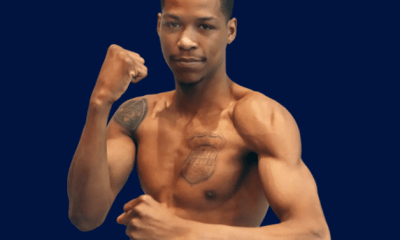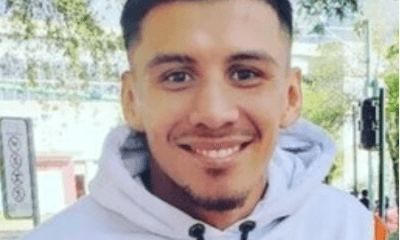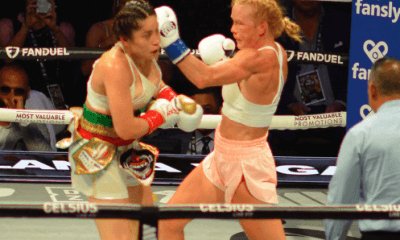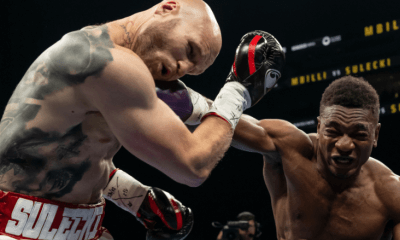Featured Articles
Giving Back to ex-Fighters in Need: It’s Not That Difficult
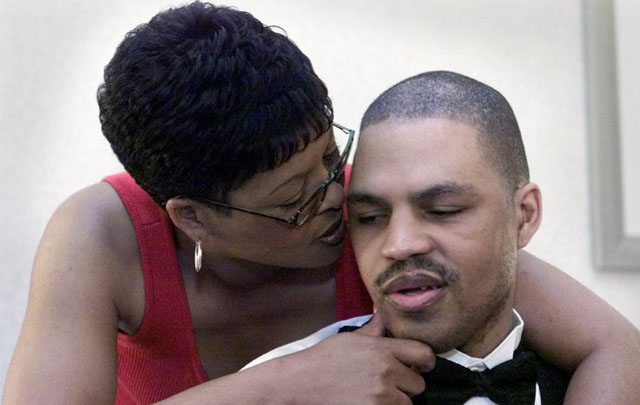
Basketball legend LeBron James has opened up a new elementary school for at-risk children in his hometown of Akron, Ohio, and has established the LeBron James Family Foundation, among other charitable endeavors. LeBron puts his money where his mouth is.
Serena Williams has received numerous awards for her charity work, including the “Celebrity Role Model” award from the Avon Foundation for her work fighting breast cancer, and the “Young Heroes” award for her support of Big Brothers Big Sisters. And most recently, the World’s Number One male tennis player, Roger Federer, spent $13.5 million to open 81 schools to educate poor African children.
Eli Manning, Derek Jeter, Jeff Gordon, David Beckham and many other high-profile athletes (both past and present) are also giving back in a big and meaningful way.
Boxing
In boxing, the late Vernon Forrest embraced the value of giving back. A fine boxer who possessed great core values, he was also known for his humanitarian work for the non-profit and still thriving organization Destiny’s Child. Former U.S. Olympic boxing team head coach Al Mitchell once said, “I really believe he’s not going to be known for his boxing skills…I think he’ll be known for the way he gave outside his sport. He was just an unbelievable person.” Vernon was special in many ways, but most importantly he inspired people.
Tyson Fury’s donation to charities was recently confirmed when a fan asked him about the financial pledge during a Q&A segment of a charity auction. “I did give away my last purse, but I don’t do charity work for a pat on the back…I do it to help people, but I do not want praise for it, I don’t want to be called a do-gooder.”
The purse for the fight was about $3.5 million. However, the pay-per-view income brought the payout to almost $9 million. According to British reports, Fury’s entire purse was donated to several UK charities that specialize in providing housing for recovering addicts and alcoholics.
Manny Pacquiao is known to give away almost half of his prize money each time he fights and much of this is done anonymously.
Anthony Joshua gives back in different but meaningful ways and he does it quietly as well.
These days, trainer and former title contender “Iceman” John Scully, The Retired Boxing Foundation, and Ring 10 (New York City) to name just a few are among those who try to inspire others to help those in need.
Lisa McClellan
This brings us to Lisa McClellan, lovely sister of the badly disabled Gerald McClellan, who lives on the disability stipend of $1,920 a month her brother receives, plus the occasional generosity of strangers. Now then, if that “occasional generosity of strangers” became more regular and less occasional in the form of tax-deductible donations, the good that would come from it would be enormously disproportionate to the donation.
Among other things, Gerald is badly brain damaged, totally blind, and 80 percent deaf. These maladies resulted from his savage bout against Nigel Benn on February 25, 1995. Entering the bout, McClellan was the WBC world middleweight champion, owned a 31-2 record, and had scored 20 of his 29 knockouts in the very first round.
Lisa has put her own life on hold to act as her brother’s caretaker, assuming the responsibility with great grace and dignity. There have been many obstacles along the way but she has persevered. Older sister Sandra was Lisa’s 50-50 partner in Gerald’s care until two years ago when Sandra’s own serious health issues caused her to step back.
“It’s been hard,” says Lisa, “but my mom raised us to look after each other, and I guess I’m just doing what’s expected. And now I’m so far in it, and he relies on me so much that I could never walk away and live a peaceful life not knowing what would happen to him.”
That’s breathtaking stuff.
In an Aug. 24, 2017 story in the Chicago Tribune titled, “Boxing totally turned its back on battered Gerald McClellan,” author Dan McGrath noted that Ring 10, a New York based non-profit established in 2011, has been the McClellans lifeline. Medical supplies salesman Matt Farrago, a former pro boxer who compiled a 25-2-1 record while competing mostly as a middleweight, is the charity’s founder and chief fundraiser and, says McGrath, a tireless spokesman.
“We’re fighters helping fighters in the only sport that doesn’t do anything for its athletes once it’s through with them,” Farrago told McGrath. “Ninety-eight cents of every dollar we raise goes to the fighters. Nobody gets turned down.”
“(Matt) won’t discuss specific contributions,” noted McGrath, “but Ring 10 maintains an account at the grocery store where Lisa buys the family’s food, and there was help with an electric bill when she fell behind several months ago.”
Images on social media of Floyd Mayweather Jr. counting his stacks of money suggest that just a tiny donation could do wonders for Gerald and Lisa. Or for Wilfred Benitez, who also requires constant care for the devastating medical issues he now faces as a result of punishment he absorbed during his Hall of Fame career. Due to the devastating hurricane that hit Puerto Rico, Wilfred has been moved to Chicago where he too is looked after by his sister, Yvonne, and by some personal friends. Wilfred, like Gerald, gave us chills and thrills and now he needs our help.
As Lisa in her typically unselfish way states, “I wish there were a way that some of that money could be set aside to help all the boxers who need help. Not just us.”
In this connection, how difficult would it be to send a donation to the Gerald McClellan Trust at 839 E. Wyandotte. Freeport, IL 61032 or to Ring 10 Veterans Boxing Foundation, Attn: Matt Farrago, 14123 85th Rd, Apt 1F, Briarwood, NY 11435? Or to Wilfred Benitez in care of Yvonne Benitez, 1009 N. Francisco Ave. Apt. 1-f. Chicago, IL 60622.
If Lisa McClellan and Yvonne Benitez are not heroes, then who is? But they sure could use our help.
Ted Sares is a lifetime member of Ring 10, and a member of Ring 4 and its Boxing Hall of Fame. He also is an Auxiliary Member of the Boxing Writers Association of America (BWAA). He is an active power lifter and Strongman competitor in the Grand Master class and is competing in 2019.
Check out more boxing news on video at The Boxing Channel
To comment on this story in The Fight Forum CLICK HERE
-

 Featured Articles3 weeks ago
Featured Articles3 weeks agoAvila Perspective, Chap. 330: Matchroom in New York plus the Latest on Canelo-Crawford
-

 Featured Articles2 weeks ago
Featured Articles2 weeks agoVito Mielnicki Jr Whitewashes Kamil Gardzielik Before the Home Folks in Newark
-

 Featured Articles4 weeks ago
Featured Articles4 weeks agoAvila Perspective, Chap 329: Pacquiao is Back, Fabio in England and More
-

 Featured Articles3 weeks ago
Featured Articles3 weeks agoOpetaia and Nakatani Crush Overmatched Foes, Capping Off a Wild Boxing Weekend
-

 Featured Articles2 weeks ago
Featured Articles2 weeks agoCatching Up with Clay Moyle Who Talks About His Massive Collection of Boxing Books
-

 Featured Articles4 weeks ago
Featured Articles4 weeks agoFabio Wardley Comes from Behind to KO Justis Huni
-

 Featured Articles1 week ago
Featured Articles1 week agoMore Medals for Hawaii’s Patricio Family at the USA Boxing Summer Festival
-

 Featured Articles4 weeks ago
Featured Articles4 weeks agoDelving into ‘Hoopla’ with Notes on Books by George Plimpton and Joyce Carol Oates

